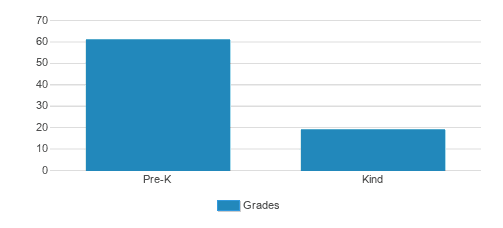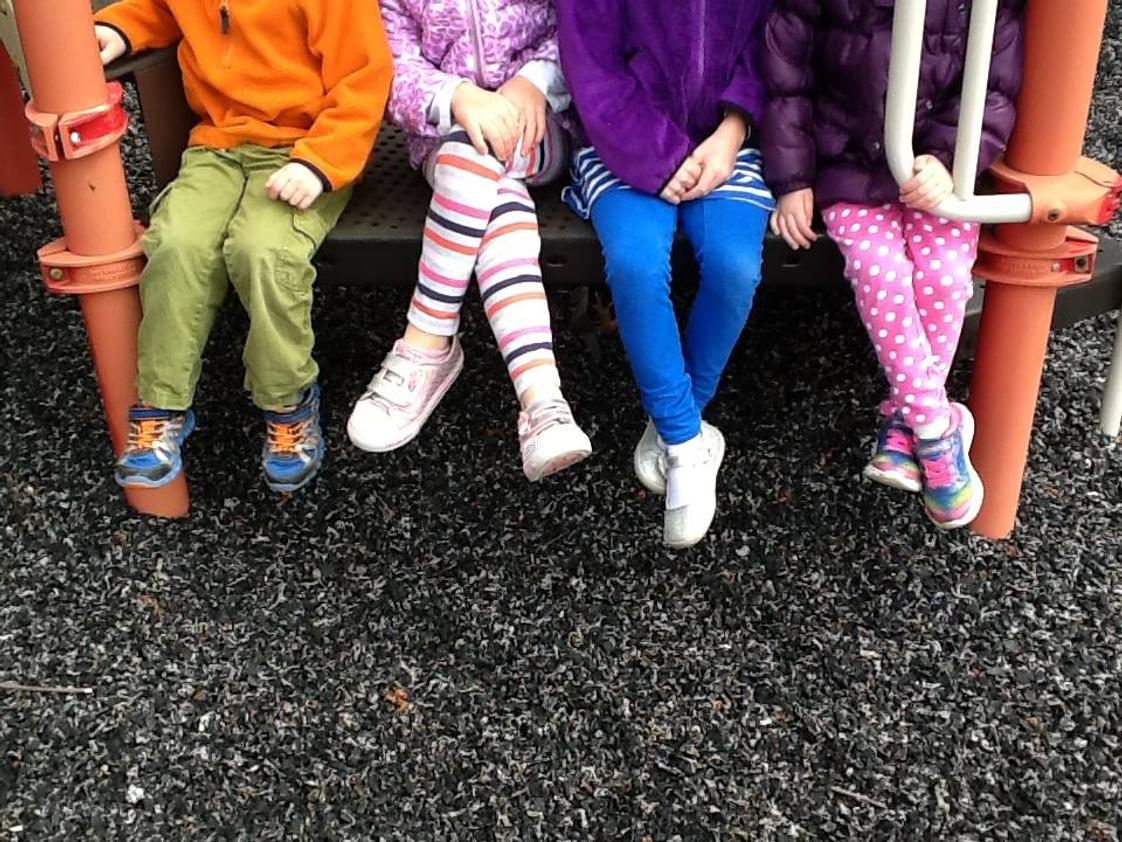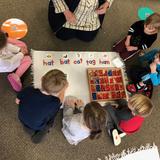Seton Hill University`s Child Development Center is a preschool for children ages three to five.
Accredited by the National Association for the Education of Young Children, the Center is under the direction of Seton Hill's Division of Education. Located on Seton Hill's main hilltop campus in Greensburg, Pa., the Child Development Center provides Seton Hill Education Program students the opportunity to observe, work and learn in an accredited early childhood environment.
Quick Facts (2026)
- School Type: Early Childhood / Day Care
- Grades: Nursery/Preschool
- Enrollment: 80 students
- Application Deadline: None / Rolling
- Source: Verified school update
School Overview
School Type
School Membership(s)School Assoc.
Religious Affiliation
Grades Offered
Grades Nursery/Preschool
ADD/ADHD Support
Yes
Year Founded
1994
School Calendar
Student Body
Total Students
80 students
Student Body Type
Co-ed
% Students of Color
5%
State avg.: 27%
Students by Grade

Academics and Faculty
Total Classroom Teachers
9 teachers
Student-Teacher Ratio
9:1
National avg.: 13:1
List of Courses Offered
Classroom Dress Code
Casual
Tuition and Acceptance Rate
Admission Deadline
None / Rolling
Application URL
School Notes
- As a part of Seton Hill University, our children are provided a unique variety of educational and cultural experiences with various members of our academic community. As a result, your child may learn to sing a song in Spanish, observe a chemistry experiment, or attend a puppet show performed by University students. Just about all of our assistant teachers are education majors. They are immersed in their professional development while being taught the current best practices in early education.
- Our program implements a thematic, integrated and developmentally appropriate curriculum that supports the principles of the PA Early Learning Standards with sensitivity to the environment, cultural and individual needs of our children and families. Our students learn invaluable social skills and get an educational jump-start through a curriculum that includes science, art, math, language arts, and music and movement. In addition, we meet children at their personal skill and ability levels to provide everyone the opportunity to succeed. Find out more today!
- Sample of notable school alumni/alumnae:
- Seton Hill Child Services was founded by the Sisters of Charity in 1966.
Source: Verified school update
Frequently Asked Questions
Who are famous alumni from Child Development Center at Seton Hill University?
Child Development Center at Seton Hill University famous alumni include: Seton Hill Child Services was founded by the Sisters of Charity in 1966..
When is the application deadline for Child Development Center at Seton Hill University?
The application deadline for Child Development Center at Seton Hill University is rolling (applications are reviewed as they are received year-round).
School Reviews
Endorse Child Development Center at Seton Hill University. Endorsements should be a few sentences in length. Please include any comments on:
- Quality of academic programs, teachers, and facilities
- Availability of music, art, sports and other extracurricular activities
- Academic or athletic awards
Recent Articles

How Global Economic Trends Shape Private School Affordability
Explore how global economic trends influence private school affordability and enrollment in 2026, with insights for families and educators.

Parent Engagement in Private Schools in 2026
Explore how parent engagement in private schools builds strong communities, support networks, and student success in 2026.

So Many Choices: Navigating Private School Selection in 2026
A 2026 parent guide to choosing the right private school, with updated admissions timelines, tuition trends, affordability strategies, and expert insights.













